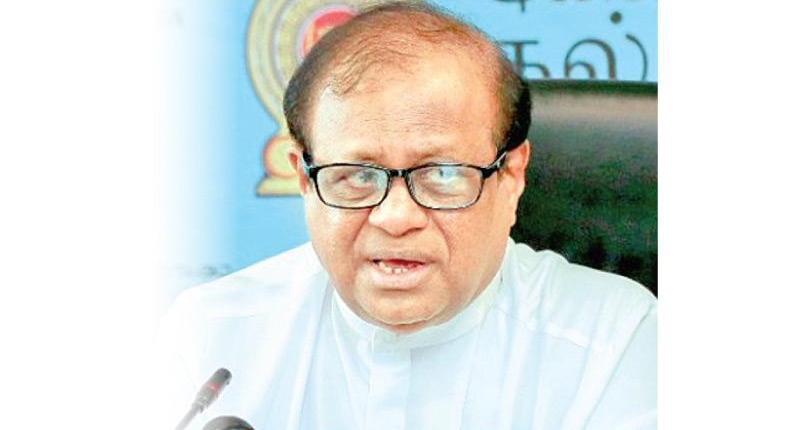Sri Lanka will introduce the STEAM education system to strengthen the national economy by combining the conceptual knowledge acquired in the classroom with practical use in and outside of the classroom. The STEAM education model is currently used in 96 countries worldwide and was first introduced in the United States in 1999. The Minister believes that the STEAM system will reduce the gap between higher and general education and provide a rationale for overcoming the challenges of the 21st century. Unfortunately, Sri Lanka students do not have the opportunity to appear for student assessments, such as the international assessment test called PISA. The Minister commented that the children should be given the opportunity to get hands-on experiences in various places and environments such as museums, science labs, mining centres, and planetariums. Emerging subjects such as nanotechnology, biotechnology, and genetic technology should be opened to school children by providing opportunities to use them. The STEAM education program will be implemented jointly with the Ministry, National Science Foundation, Science and Technology Centres, University System, and Training Institutes.
Sri Lankan Schools to Implement STEAM Education System from Tomorrow
The STEAM education system will be introduced in Sri Lankan schools from tomorrow under the theme ‘Let’s see – let’s work – step into the future’. According to Education Minister Dr. Susil Premajayantha, this system could strengthen the country’s economy as it contributes up to 65% of the GDP in some countries.
The STEAM education system combines conceptual knowledge acquired in the classroom with practical applications both inside and outside the classroom. It is currently used in 96 countries around the world and is known worldwide as STEAM Education (Science, Technology, Engineering, Arts, Mathematics). The United States first introduced this system in 1999 through the National Science Foundation. Finland, which has the number one education system in the world, has also implemented the STEAM education system.
Dr. Susil Premajayantha noted that the STEAM education system has proven to be a successful method of education. After 20 years of STEAM education in the United States, 62% of the country’s national income is represented by creative citizens including innovators born out of the STEAM education system. However, Sri Lankan students do not have the opportunity to appear for student assessments, such as the international assessment test called PISA (PISA- Program for International).
The Minister further commented that students should be given the opportunity to gain hands-on experience in various environments such as museums, science labs, mining centers, planetarium, and not limited to the classroom. Emerging subjects such as nanotechnology, biotechnology, and genetic technology should also be opened to school children by providing opportunities to use them.
When asked about the implementation process of STEAM education countrywide, Dr. Susil Premajayantha stated that it would not be difficult to carry out this educational transformation due to the country’s high level of human resources consisting of talented teachers.
This STEAM education program will be implemented jointly for the first time in Sri Lanka in coordination with the Ministry, National Science Foundation, Science and Technology Centers, University System, and Training Institutes.
The STEAM Education System to Bridge the Gap Between General and Higher Education
Sri Lankan schools will be implementing the STEAM (Science, Technology, Engineering, Arts, Mathematics) education system starting from March 31st under the theme ‘Let’s see – let’s work – step into the future’. According to Education Minister Dr. Susil Premajayantha, this system is expected to reduce the gap between higher education and general education and will produce a group of children with thinking skills, enabling them to overcome the challenges of the 21st century.
The STEAM education system contributes up to 65% of the GDP in some countries, which could strengthen the national economy of Sri Lanka. This model is currently used in 96 countries around the world, led by the United States, and has been widely recognized as a successful method of education. The National Science Foundation of the United States of America introduced the STEAM education system in 1999 to their schools, and it is now known worldwide as STEAM Education.
Finland, known for having the number one education system in the world, has also implemented the STEAM education system. Unfortunately, Sri Lankan students do not have the opportunity to appear for student assessments, such as the international assessment test called PISA (Program for International Student Assessment).
The Minister noted that it has been revealed after 20 years of STEAM education in the United States of America, 62% of the country’s national income is represented by creative citizens including innovators born out of the STEAM education system. He further commented that Sri Lankan children should be given the opportunity to gain hands-on experience in various places and environments such as museums, science labs, mining centers, planetarium, and not limited to the classroom. Emerging subjects such as nanotechnology, biotechnology, genetic technology should also be opened to school children by providing opportunities to use them.
When asked about the implementation process of STEAM education countrywide, Dr. Susil Premajayantha stated that it would not be difficult to carry out this educational transformation because Sri Lanka has a high level of human resources consisting of talented teachers. The Minister expects to implement this STEAM education process successfully in the school system by providing physical resources such as textbooks to the students in due time.
The STEAM education system arms schoolchildren with the ability to combine the conceptual knowledge acquired in the classroom under general education with practical use in the classroom as well as outside of it. By providing students with hands-on observations and experiences, the STEAM education system could provide a way to get rid of the outdated exam-centered education system of studying, memorizing, and writing for exams.
The Benefits of STEAM Education for Sri Lankan Schools
Starting March 31st, Sri Lankan schools will implement the STEAM (Science, Technology, Engineering, Arts, Mathematics) education system under the theme ‘Let’s see – let’s work – step into the future’. According to Education Minister Dr. Susil Premajayantha, this program is expected to bridge the gap between higher education and general education and provide students with critical thinking skills necessary to overcome the challenges of the 21st century.
The STEAM education system is utilized in 96 countries around the world and has been identified as a successful method of education. In the United States, where the system originated from the National Science Foundation in 1999, 62% of the country’s national income is represented by creative citizens, including innovators born out of the STEAM education system.
Finland, renowned for having the best education system in the world, has also adopted the STEAM education system. Education Minister Dr. Susil Premajayantha noted that Sri Lanka has yet to adapt to this system, and it is believed that implementing STEAM education could strengthen the national economy. In fact, STEAM education contributes up to 65% of the GDP in some countries.
STEAM education arms students with the ability to combine theoretical knowledge acquired in the classroom with practical use in and outside of the classroom. This approach to education is expected to replace the traditional exam-centered system of memorization and writing for exams.
The Minister added that the success of the STEAM education system will depend on the availability of physical resources such as textbooks. The program will be implemented jointly for the first time in Sri Lanka in coordination with the Ministry, National Science Foundation, Science and Technology Centres, University System, and Training Institutes.
Opportunities for Sri Lankan Students
Sri Lankan students do not currently have the opportunity to appear for student assessments like the international assessment test called PISA (Program for International Student Assessment). However, Education Minister Dr. Susil Premajayantha believes that Sri Lankan children should be given the opportunity to gain hands-on experience in various places and environments such as museums, science labs, mining centers, planetarium, and not limited to the classroom.
Emerging subjects like nanotechnology, biotechnology, and genetic technology should be opened to school children by providing opportunities to use them. By doing so, Sri Lankan students can be equipped with the necessary skills to succeed in the modern world.
In conclusion, the introduction of the STEAM education system in Sri Lankan schools could have a positive impact on the country’s education system and economy. With the support of the Ministry, National Science Foundation, Science and Technology Centers, University System, and Training Institutes, this program has the potential to produce a group of students with the necessary critical thinking skills to overcome the challenges of the 21st century.
According to Education Minister Dr. Susil Premajayantha, implementing the STEAM education system countrywide in Sri Lanka is not expected to be difficult due to the high level of human resources available, including talented teachers. The STEAM education programme will be implemented jointly with the Ministry, National Science Foundation, Science and Technology Centres, University System and Training Institutes. The Minister believes that the STEAM system will reduce the gap between higher education and general education and will provide a rationale for overcoming the challenges of the 21st century. The STEAM education process will be successfully implemented in the school system by providing physical resources such as textbooks to the students in due time.
Don’t miss interesting posts on Famousbio









